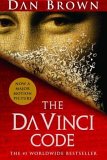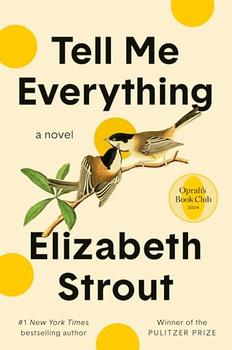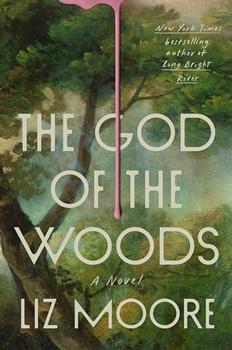Write your own review!
Alex
If I could give this no stars, I would. I can't belive how popular it is.
From a European perspective, it shows (as so often) a worrying insularity amongst some US authors - the first 20 pages are a completely unjustifiable rant against the French, rather than good scene setting, and then we have the almost obligatory mad Englishman who won't let people into his estate unless they can identify the correct way to take tea...
The writing is equally appalling, with the author so keen to demonstrate how many 'facts' he knows - from the mundane, such as how many Eiffel Towers would line the permiter of the Louvre, to the more archaic and debateable details of goddess-worship - that all narrative momentum is lost.
If you did really like this book, can I suggest - as some people previously have - that you read 'Foucalt's Pendulum' by Umberto Eco. The writing is on a different plane, as is the deep understanding of his material that Eco possesses. If you are really interested in the conspiracy theory underpinning the book's plot, I would suggest reading 'The Holy Blood and the Holy Grail', by Baigent and Leigh, from whoch much of the material here has been lifted.
If you must read the book itself, borrow it from a friend. I am incredibly annoyed to have spent money on it.
Sharon L.
I adore mysteries (especially nearly any book by Ruth Rendell), and some thrillers, but I thought this novel was almost unworthy of any rating at all, and it depresses me that it's such a huge best seller. It is based on some history--the Knights Templar, etc.--and some of the possibilities explored here are interesting, but the level of the writing is below poor. It has now been passed through our family, and nobody has liked it except as a point from which to launch their own investigations into some of the themes. Point is, the only things of interest aren't even original, but borrowed.
N. Moses
Wow is this book bad! The author clearly has a very anti-religious agenda to push, so he creates one of the most implausible and ridiculous plots I've ever read, just so he'd have vehicle with which to share it. The characters are uninteresting, and the story is laughably outrageous. I had to force myself to finish it.
Nancy
The human mind is pretty suseptible for doubt. People lack of faith due to spiritual ignorance. No wonder why this wise words were said "and few are the chosen" D. Brown, pretty weak in the facts of the Bible and the mistery of God, prints his own self believes mixed with some historical background of Leonardo Da Vince who himself did not believe in Jesus until few minutes before his death. So, what great authority in Biblical principals does Brown could have?
Paul McNamee
I don't think I have ever read a book I disliked more. The writing is sophomoric, the use of cliff-hangers and heavy-handed foreshadowing is ludicrous, and the combination of situation and dialogue is hysterically funny, without, of course, intending to be. Characterization is virtually non-existent, but often contradictory. The book makes use of extensive dubious etymology, and frequently presents as facts what, at best, can only be conjectures.
It is a very sad thought that this is a runaway best-seller. It makes one doubt deeply the wisdom of universal literacy.
skeptic
I have been reading the Da Vinci Code after much recommendation from my friends and all the Internet hype. I have no problem with the secret information that Dan Brown's heros put together in the book. It doesn't upset my faith. And I have to remember it's just a novel. It is a very clever and intriguing plot. The problem I have with the book is the claim on the frontspeice and Dan Brown's web site about how extensive was the research and how accurate the description of the architecture and buildings. I know this is just fiction, but Dan Brown's sloppy writing makes it difficult for me to keep interested in the book. He obviously didn't do any research about the layout of Paris--his trip from the Ritz to the Louvre past the opera house and through the Place Vendome is almost the old joke ' you can't get there from here.' In one chapter he can't drive a standard transmission on a 4-cylinder car. In the next chapter he's an expert driver in a 10- ton armored car. They just don't put automatic transmissions in vehicles that heavy. He has the trains in Gare St. Lazare wheezing and puffing when French trains hum because they are electric and make no noise whatsoever when they are idle. His use of terms like "nowadays" that would get a freshman a failing grade on a term paper are all through the book. All the lack of accuracy on things that are simple to research makes me suspect that he did any research at all on the complex things that make up the mystery. The "suprise" left in code in by Da Vinci has been available to anyone capable of reading the Gnostic gospels which have been in print since atleast the 1920's . I think this could have been a really great novel if a little more effort were put into the writing. I think the only reason so many people see this as a must read book is its connection with religion.
Fran
I agree with Curt Parton. Brown's research is stunning in it's shoddiness. Anyone with a cursory knowledge of the Bible can find many errors. The kingly line of Benjamin? Sorry Dan, that would have been Judah. The only king in Benjamin's line was Saul-and he was elected by the people and dethroned by God. The Dead Sea Scrolls predate Jesus' birth, so obviously don't mention him except prophetically as the coming messiah. They certainly don't refer to him by name. Brown contends that the idea of "the holy grail" being a cup is from the Bible. The fact is that the cup at the Passover meal (Da Vinci's Last Supper) is mentioned only in passing and never venerated as something holy. Brown claims that in the Gospel of Phillip, Mary Magdalene is called Jesus' companion and "as any Aramaic scholar will tell you, the word companion, in those days, literally meant spouse." Maybe so, but unless Brown's character was speaking to Phillip personnally, it doesn't matter what it means in Aramaic. The gospels were written in Koinonia Greek; Aramaic was the commonly spokenlanguage of Jesus' day.
Sadly, many people will take this book as historically accurate when it apparently is just Brown advancing his prejudices.
jpj
Curt Parton has said it best so far. Read below.
And for my 2 cents: I'm a lazy reader and yet blaming CHRISTIANS for (so he seems to imply??) writing GENESIS (pp. 238) -- huh?
Also did anyone get the sense this guy was using a computer to help him write it? 'Clambering excitedly' , 'unnerving pause', 'feeling a shiver of anticipation'...
enough of that PRAC! give me something to worthy of readers.




